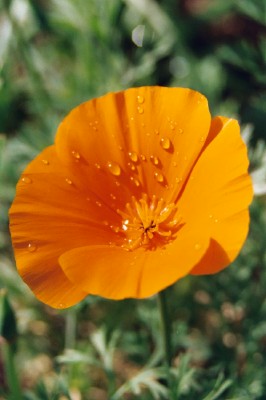Amy Stewart
 There are some books
that just make you go 'Well. I never knew that.' And then there are books which
make you say it over and over again, to the point where you start
bringing up random facts in conversation with friends and family,
just to get them out of your head, and when those facts happen to be
about small and often fearsome things with a lot of legs your friends
and family quickly start looking at you a teensy bit oddly.
There are some books
that just make you go 'Well. I never knew that.' And then there are books which
make you say it over and over again, to the point where you start
bringing up random facts in conversation with friends and family,
just to get them out of your head, and when those facts happen to be
about small and often fearsome things with a lot of legs your friends
and family quickly start looking at you a teensy bit oddly.Did you know, for example, that British diplomat Charles Stoddart was condemned to spend four years being eaten alive by blood-sucking assassin bugs while held captive in an Uzbek bug pit in the mid-19th century?
Or that there is a caterpillar in south America so venomous that if you happen to tread on them barefoot you suffer massive internal bleeding and organ failure? Or that the crew who sailed to America with Christopher Columbus were driven so mad by the chigoe flea, which buries itself under a toenail and lives out its life there, that they cut off their own toes to get rid of it?
Nope, nor me.
You will have guessed by now that 'Wicked Bugs' isn't, strictly speaking, a gardening book, but since we gardeners spend such a lot of our time either encouraging in 'good' bugs (ladybirds, lacewings, hoverflies) or murdering 'bad' ones (aphids, caterpillars, whitefly, slugs: the list goes on... and on...) then a book about them can only be endlessly fascinating.
There is a section on garden pests which is... well... almost as interesting as the ones about sailors and armies (did you know some used to throw clay pots full of scorpions at advancing Roman troops, circa 200AD, by the way?) though it does suffer a little from a sudden outbreak of advice-giving. I did think the bit about aphids was horrifying though: apparently one female aphid is born already containing within her the beginnings of a 'daughter' who is herself already pregnant with a third generation. Wow. That explains a lot.
Others, though, like the terrifyingly efficient Colorado potato beetle, are given a section all their own, so dreadful are they. The Germans thought the US Army was waging biological warfare by dropping Colorado beetles on their heads from planes during the Second World War, you know.
And so Amy Stewart gambols on through tales and titbits so surprising, arresting and downright gut-churning that I have been glued to this book ever since I started on page one. I love her obvious delight in her subject and her ability to tell a good yarn; she has a talent for winkling out little snippets of unfeasibly extraordinary information and using it to grab you by the ears. I just wish I knew how she finds out this stuff.
Little niggles: this is an unremittingly American book, to which you have to adjust yourself and stop chuntering about early on. Sometimes that's a good thing: I've always loved the American ability to find an original turn of phrase (no clichés here).
But there's a general
assumption that the reader's attention is wandering off all the time
(surely impossible given the content of almost every page), so we've
got silly little 'pull-quote' things repeating choice bits of a
paragraph in a larger type, presumably to titivate the reader but which
end up interrupting the flow. I trained myself to ignore them.
Otherwise, though, the book is a gorgeous little thing: I
loved its styling as a battered field notebook, and the line drawings
and etchings by Briony Morrow-Cribbs are simply exquisite and a
master touch.
Amy already has a more plant-oriented book out, 'Wicked Plants', all about poisonous plants, and it's now on my must-have list. Incidentally. you can read a bit more about the book in Amy's own words on the BBC Gardening blog.







No comments:
Post a Comment